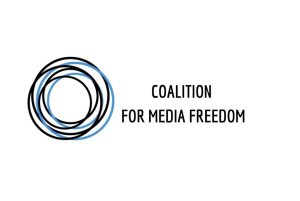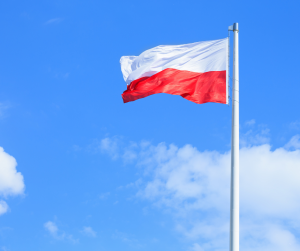To mark the International Day to End Impunity for Crimes against Journalists on November 2, the Media Freedom Rapid Response (MFRR) honours the memory of those who have lost their lives in the pursuit of truth and demands justice for the crimes committed against them.
The killing of a journalist is an attack on freedom of expression, an assault on the public’s right to know and a fundamental threat to democracy. Tragically, this past year alone has seen a disturbing pattern of violence and inaction, with four killings of journalists in Europe in October alone: three in Ukraine and one in Turkey.
The most recent murder occurred on October 23 in Ukraine, when Olena Hubanova and Yevhen Karmazin were killed in a Russian drone attack in Kramatorsk. Earlier that month, on 3 October, French photojournalist Antoni Lallican was killed in a targeted drone strike. Reporting confirmed that Lallican was killed with the use of an FPV (first-person view) drone, which allows operators to visualise their targets at the moment of the strike with the use of a camera. Lallican was visiting visible PRESS markings at the time of his death.
The ongoing and apparently deliberate targeting by the Russian military of journalists in Ukraine, and the fact that Russia refuses to investigate or even limit strikes on media workers, are stark reminders of the dangers journalists working in conflict zones face and the urgent need for protection and accountability.
These risks are not only confined to war zones, as demonstrated by the death of Victoria Roshchyna, a Ukrainian journalist detained and held in custody for over a year at an undefined location by Russian authorities. Roshchyna, whose death was confirmed in October 2024, weighed only 30 kilograms at the time of her death. Her body showed signs of torture while in Russian captivity.
In Turkey, Hakan Tosun, a journalist and activist known for his reporting on ecological destruction and local corruption, was brutally beaten in Istanbul and died from his injuries on 13 October 2025. The Büyükçekmece Chief Public Prosecutor’s Office is reportedly investigating the case. With two arrests made, authorities must now swiftly confirm whether his journalistic work was the motive behind the attack.
Impunity meanwhile continues for dozens more journalists killed in Europe in recent years. In total, 15 journalists were killed in relation to their activities since the start of Russia’s full-scale invasion of Ukraine on 24 February 2025. To date, no one has been held accountable for any of these killings.
Within the EU, seven years after the assassination of investigative reporter Ján Kuciak and his fiancée Martina Kušnírová in Slovakia, the alleged mastermind has been acquitted multiple times. In Malta, while two men were recently sentenced for their roles in the car bombing that killed Daphne Caruana Galizia in 2017, the alleged mastermind has yet to face justice, with a trial expected to start next year. In Greece, the murder of Giorgos Karaivaz in April 2021 remains unsolved, with two suspects acquitted due to insufficient evidence.
These tragedies are not isolated incidents but part of a global crisis of impunity for the killing of journalists, both in and outside of conflict zones. This lack of justice sends a chilling message that those who target journalists can do so without accountability and that violence is an acceptable means to silence the press. We call on governments to ensure thorough and independent investigations, to protect journalists at risk, and to support independent media in their vital work.
On this day, MFRR partners reaffirm our commitment to pushing for justice for journalists who have lost their lives. We will continue to monitor these cases, advocate for justice, and demand an end to the culture of impunity at the international level. Justice delayed is justice denied. The time to act is now.
Signed by:
- ARTICLE 19 Europe
- European Centre for Press and Media Freedom (ECPMF)
- European Federation of Journalists (EFJ)
- Free Press Unlimited (FPU)
- International Press Institute (IPI)
- Osservatorio Balcani Caucaso Transeuropa (OBCT)
Source: EFJ




